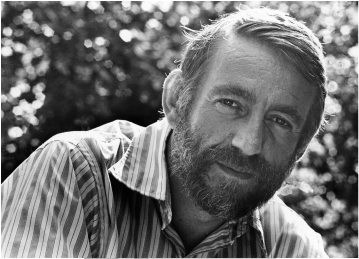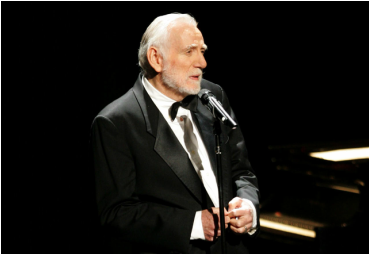|
When I was in high school, I found a book of poetry that belonged to my father, bought when he was in college. It was Stanyan Street and Other Sorrows by Rod McKuen. The poetry was clear and simple, unpretentious, and emotionally direct. One poem, “Orly Field,” was especially striking. I often Reading it now, I’m not sure how unpretentious it actually is, but it struck a chord with me. I read it again and again, and then I set it to music, for choir and piano. At least, I set most of it to music. There were several parts, like the bits about Hydra and Atlanta, that I left out entirely. I’m not sure why. This was the summer before my senior year, so who knows what I was thinking.  Summer ended, school started, and I showed my version of “Orly Field” to the choir director, Jeff Snyder. He liked it but was a bit concerned about the legality of the whole thing. After all, this was a poem by a living poet, very much under copyright, and I hadn’t asked for permission. So, we did what seemed to be the logical thing. We went online. On Rod McKuen’s website, we found a section that was, rather helpfully, entitled “Ask Rod.” Be aware, it said, that Rod McKuen does not give personal responses. Oh well, we thought. What else were we going to do? About a week later, I was online — these were the days of AOL — and I saw an email from an address I didn’t recognize. It was from Rod McKuen himself, telling me he was very interested in hearing my piece, and thanking me for my interest in his poetry. And while I was reading the email, he IM’d me. He was flattered, he told me, that I would want to set his poetry to music, and he asked me to send him a copy of the music. And yes, he said, I had his permission. I sent him the music, and it was about a month before I heard back from him again. This time, rather than email, it was a phone call. He loved the piece, he said, and it worked much better than he had thought it could. He also asked if I would consider setting other poems of his to music. He had a new book coming out and he’d send it to me. I never did get the book of poems. He sent me a few CDs a little while later, mostly of French songs that he had translated into English in the ’70s, and he also invited me to a concert he was giving at Carnegie Hall, but I didn’t go. That was more than a decade ago.  Rod McKuen passed away earlier this year, on January 29. I was unaware of his passing until last evening. There was no fanfare, no headline alert from the New York Times, no tearful tributes from songwriters. I guess I shouldn’t be surprised. Even though his work had been very popular, and maybe even because of his popularity — he has sold over 100 million recordings and over 60 million books of poetry — he always struggled to be taken seriously by critics. It didn’t happen overnight, but Rod McKuen and his work have gone from being hugely popular to being almost completely forgotten, from celebrity to obscurity. He tried to do a “comeback” tour in 2001, but ticket sales were very slow, and the tour was cancelled after just a few concerts. I’ve often wondered if there would be a renewed interest in Rod McKuen’s work after his death. At this point, that doesn’t appear to be the case, but I’m not giving up hope. I think McKuen was a good poet, maybe even a very good one, and his work deserves to be rediscovered and reconsidered. Sure, it’s not Shakespeare, and it’s not Ginsberg, but who is? There’s an emotional honesty to it, a homespun simplicity, that can feel refreshing, like an antidote to the inaccessibility of some modern poetry. If you can, I’d really encourage you to seek out his work. It’s worth your time. As for me, I will always remember Rod McKuen as one of the earliest advocates of my music, as someone who came to my music with little in the way of expectations and liked what he heard. I’ll also remember him as an exceptionally generous artist; I don’t know how many poets would let a high school student set his work to music, but that’s exactly what he did, even before he heard it. So, I raise my glass to Rod McKuen. Rest in peace, my friend. Words can barely express how grateful I am, and how much your words of encouragement meant to me. Thank you, so much. I’m sorry for not keeping in touch, and for putting too much trust in time. I hope you can see Spain from where you are.
5 Comments
|
AuthorChris Massa is a US-born musician based in Durham, England. You are on his site right now. Archives
June 2024
Categories
All
|
|
Copyright © Christian David Massa
|

 RSS Feed
RSS Feed